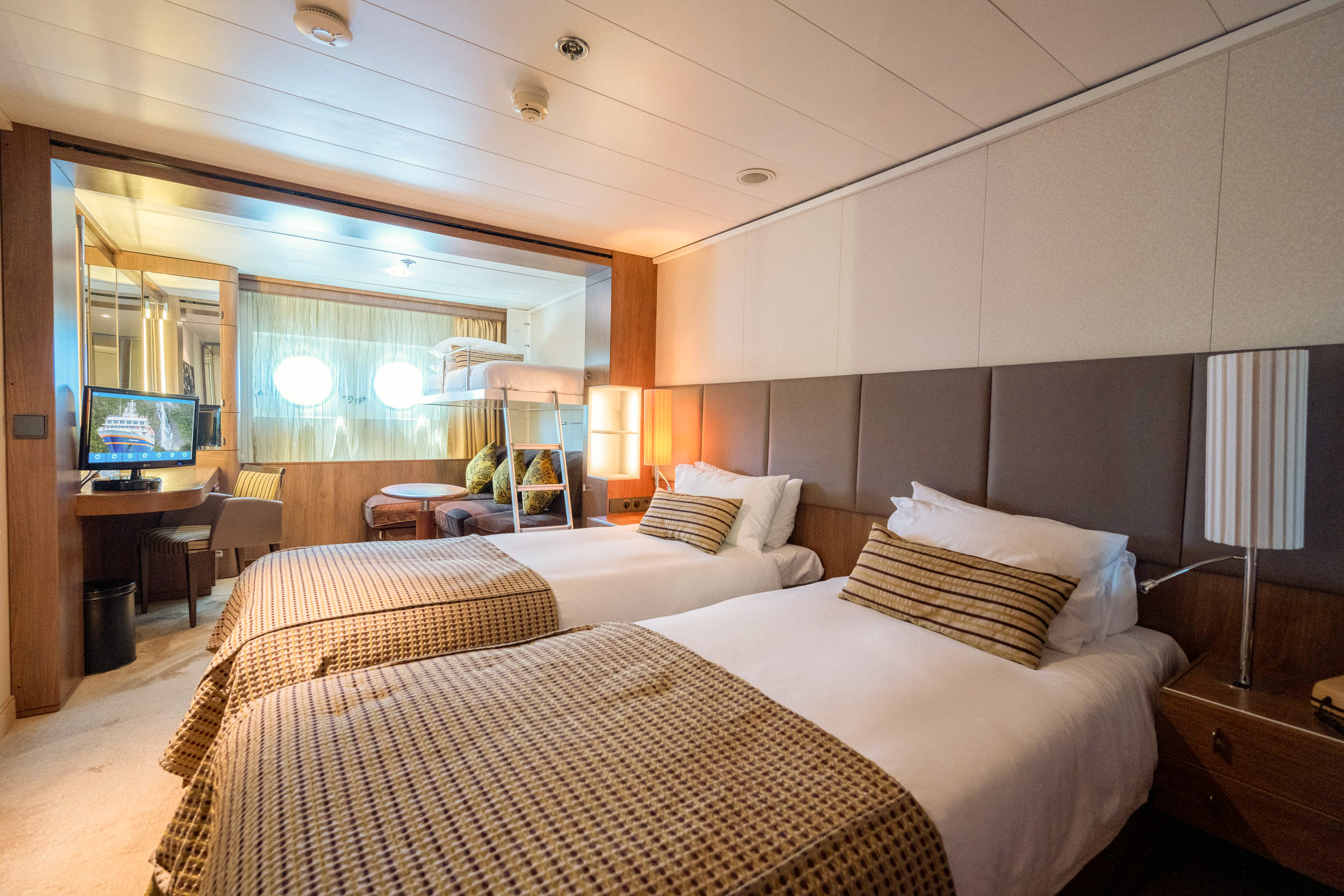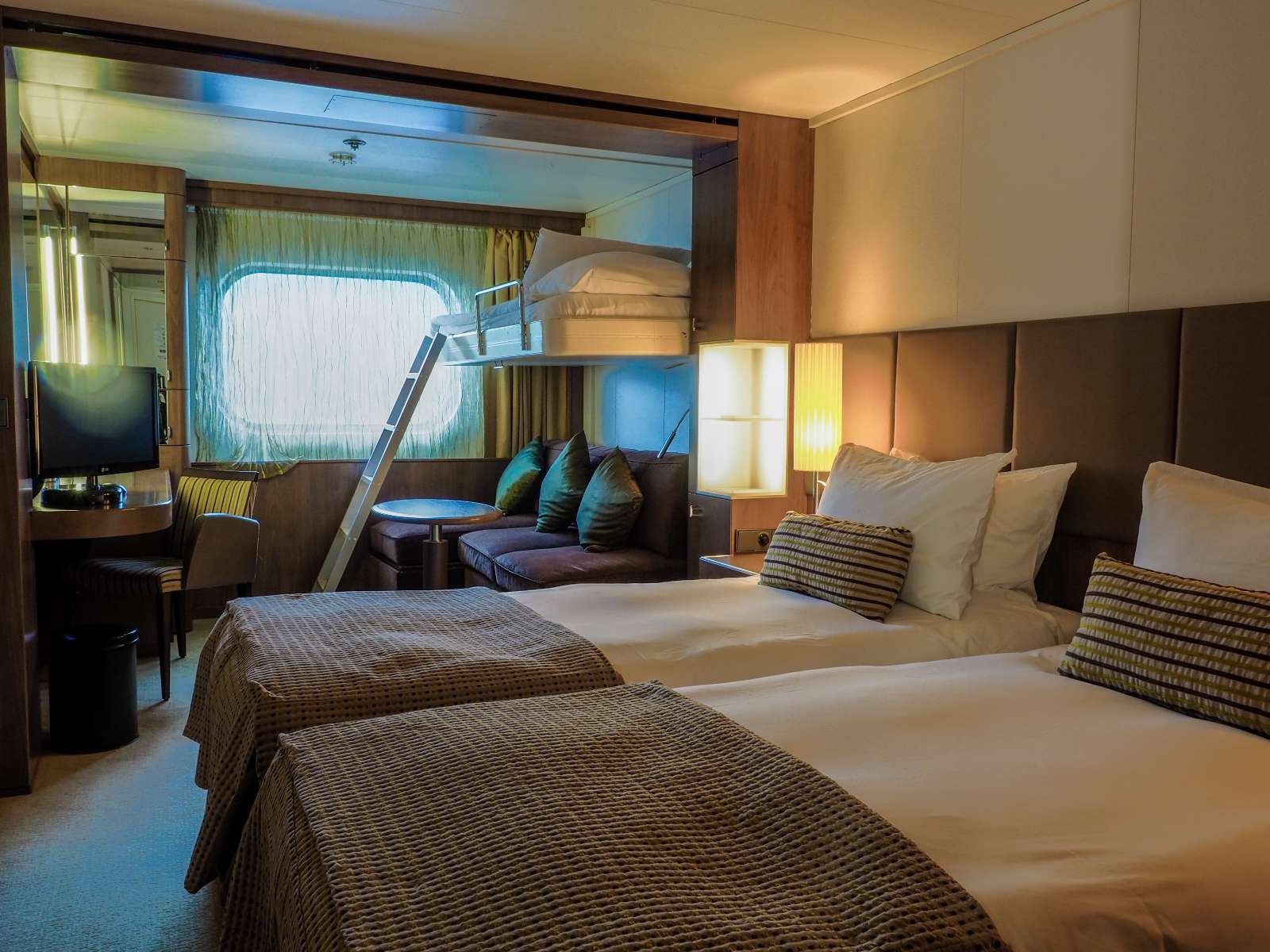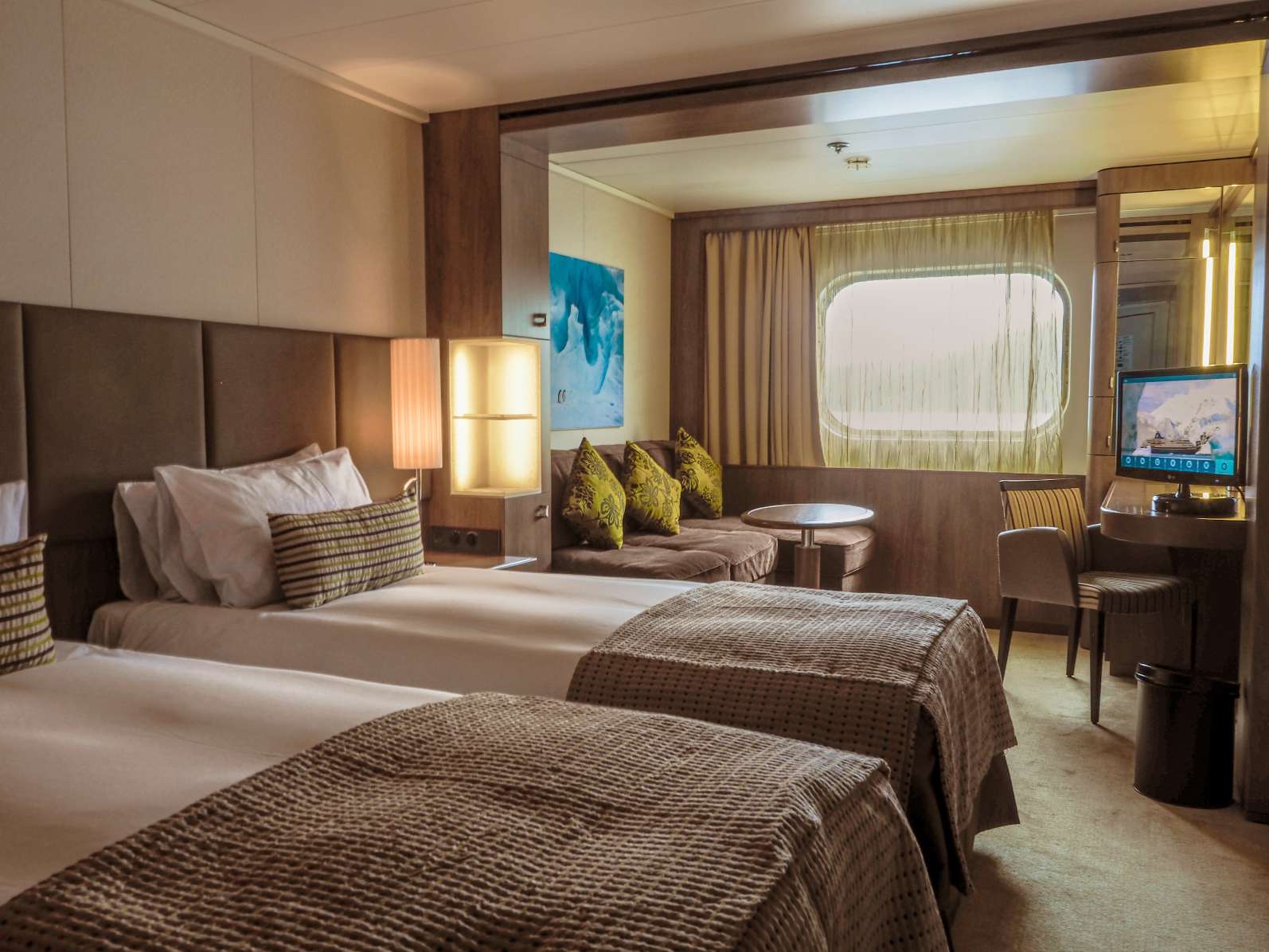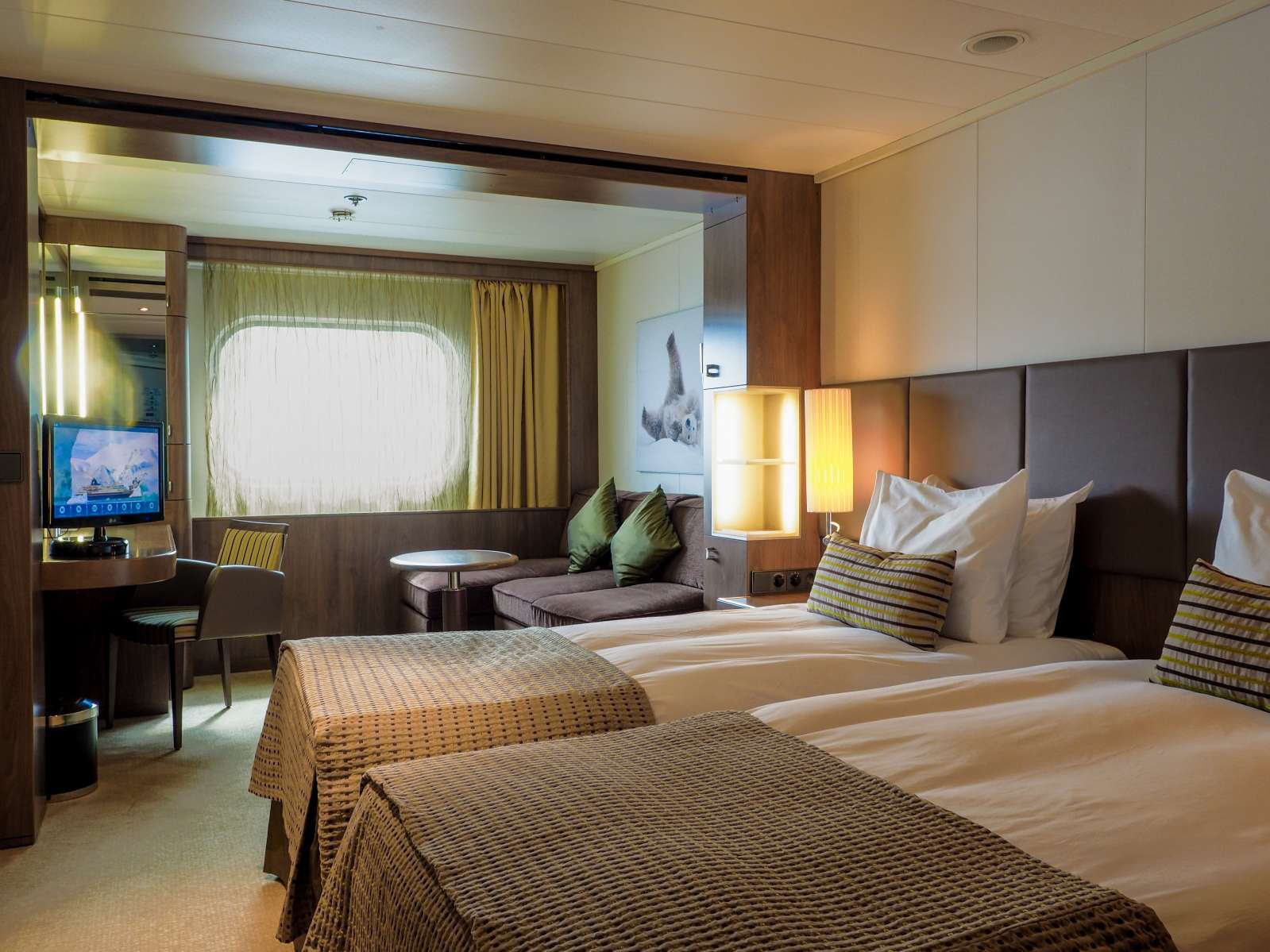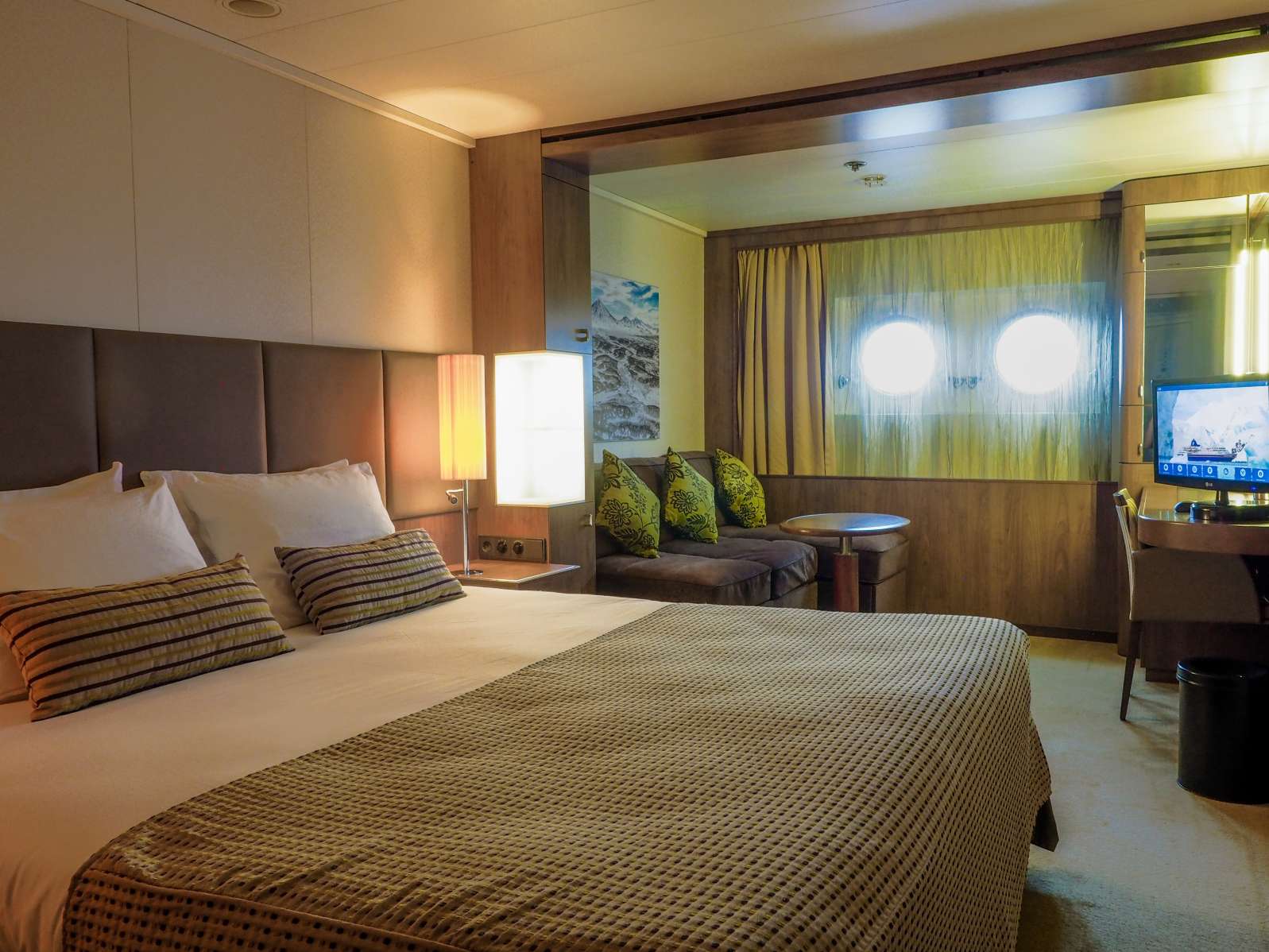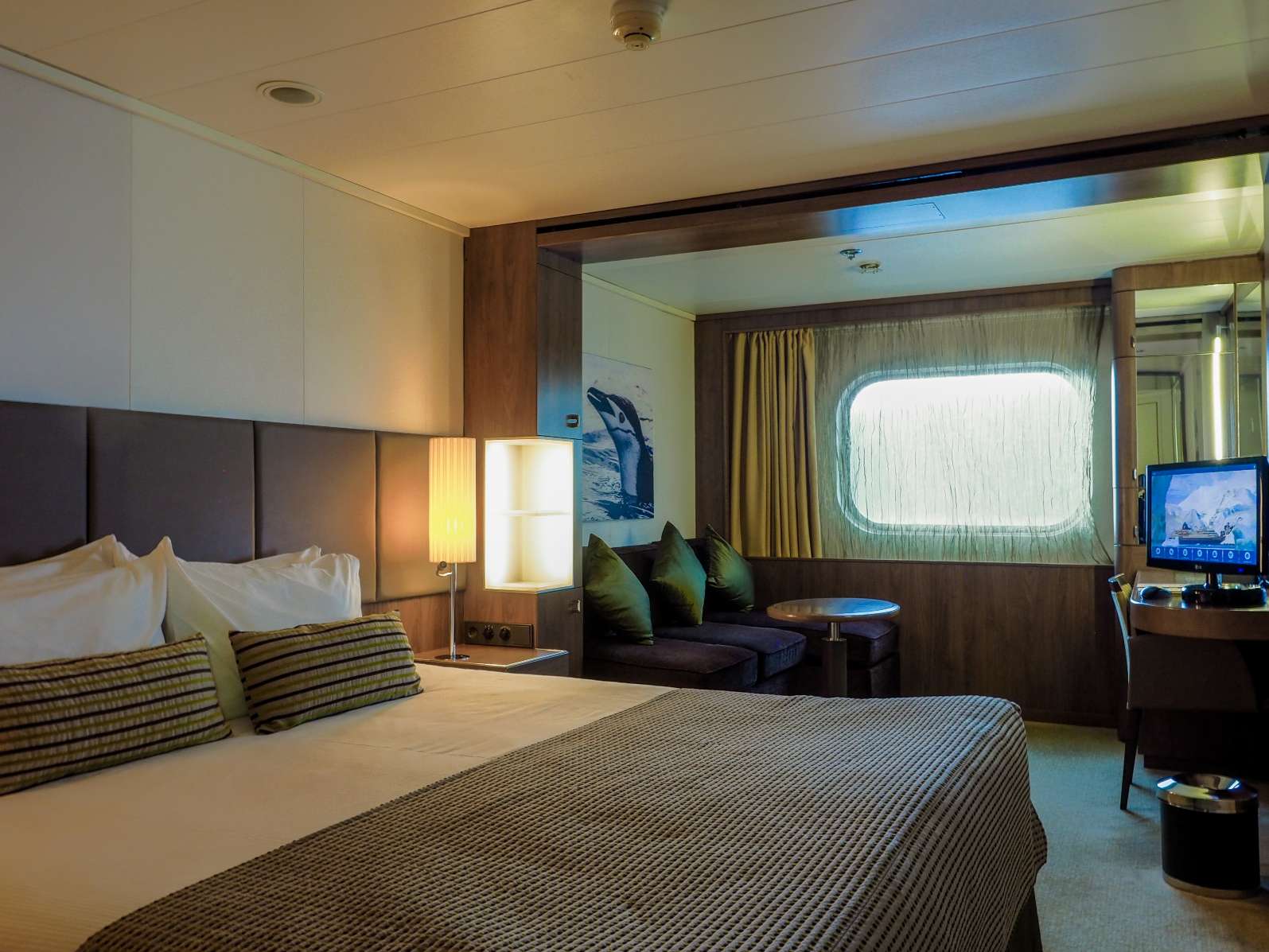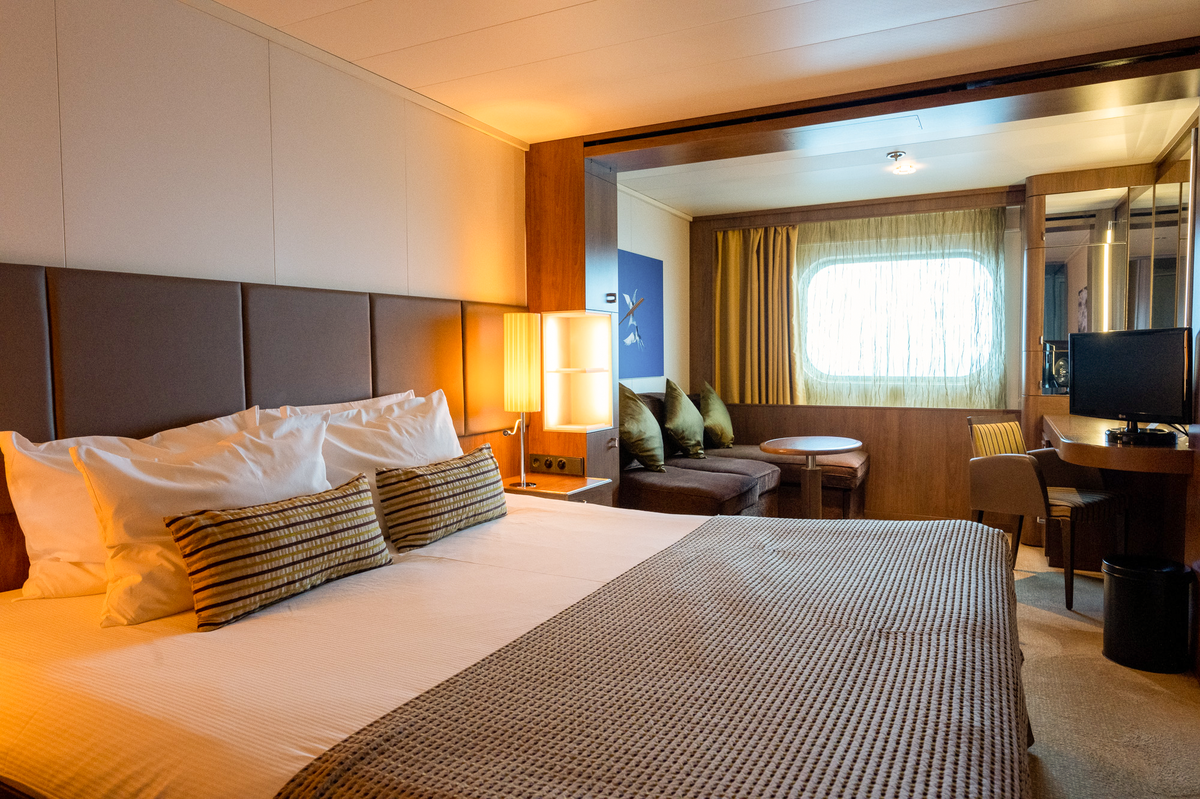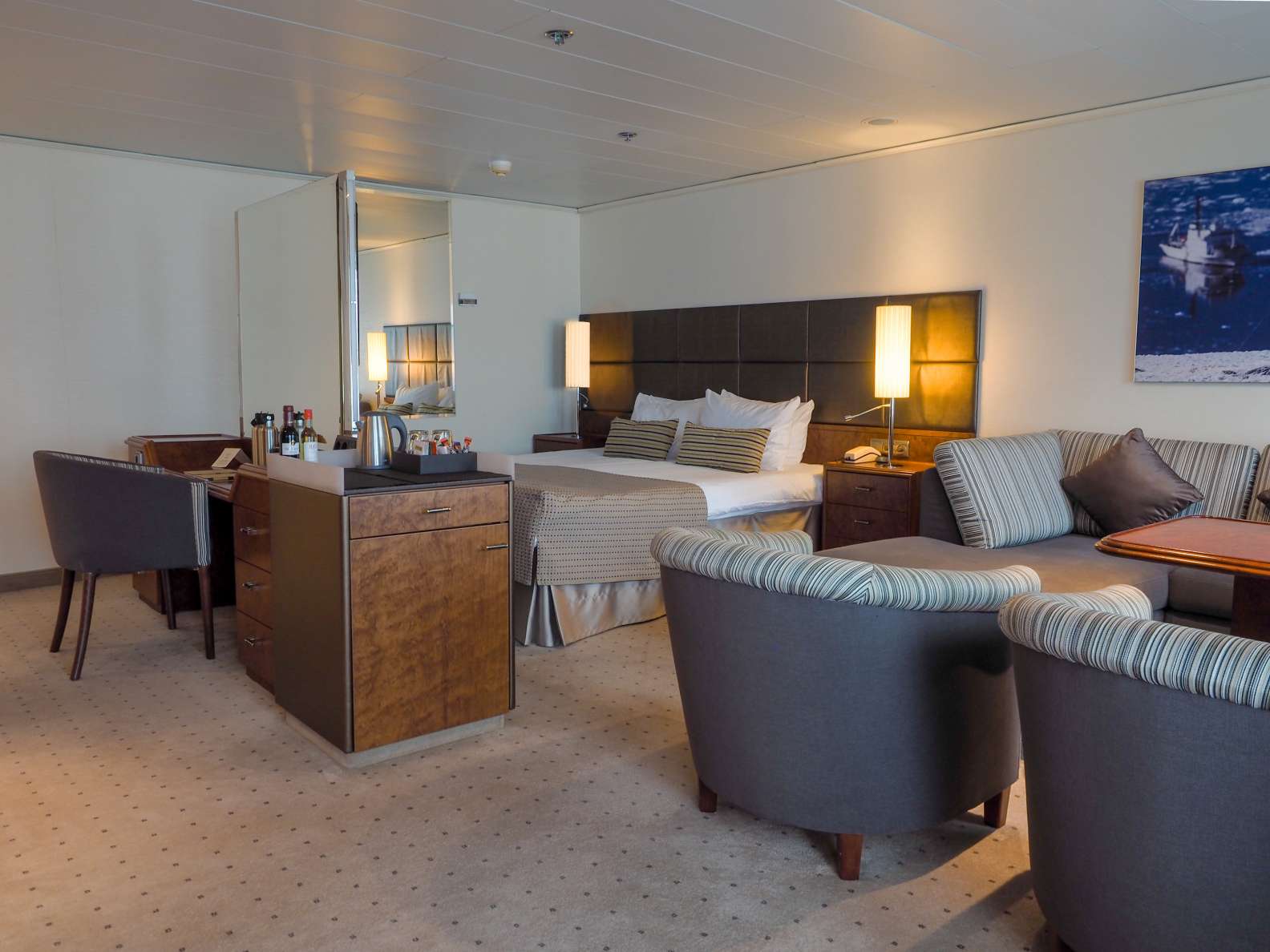In the Wake of Scott & Shackleton: Ross Sea Antarctica
20% off selected cabins
DAYS 28 / SHIP Heritage Adventurer
DEPARTURES 10 Jan 2026 / 5 Feb 2026 / 6 Jan 2027 / 1 Feb 2027
PLACES VISITED Macquarie Island / The Ross Sea / Auckland Islands / Campbell Island
PRICES FROM $31,500 USD (More Rates)
The Ross Sea region of Antarctica is one of the most remote places on Planet Earth and one of the most fascinating places in the continent’s human history.
With shipping restricted by impenetrable pack ice to just two brief months each austral summer, few people have ever visited this strange and beautiful territory, with opportunities for non-scientific personnel limited to a handful of tourist expedition ships. Heritage Expeditions offers such a voyage on its own fully equipped and ice-strengthened ship Heritage Adventurer, crewed by some of the most experienced officers and sailors in the world and staffed by a passionate and knowledgeable expedition team. Heritage Expeditions are the original and most experienced Ross Sea operators and have been exploring the Ross Sea region for more than 35 years. Our iconic In the Wake of Scott & Shackleton voyage has featured in television documentaries Go Further South, Antarctica from Above (narrated by Lucy Lawless) and Nigel Marven’s The Last Penguin.
The Ross Sea takes its name from Sir James Clark Ross who discovered it in 1841. The British Royal Geographical Society chose the Ross Sea for the now famous British National Antarctic Expedition in 1901-04 led by Robert Falcon Scott. That one expedition spawned what is sometimes referred to as the ‘Race to the Pole’. Ernest Shackleton almost succeeded in 1907-09 and the Japanese explorer Nobu Shirase tried in 1910-12. Scott thought it was his, but was beaten by his rival, Norwegian Roald Amundsen in the summer of 1911. Shackleton’s Trans-Antarctic expedition in 1914-17 marked the end of this ‘heroic’ or ‘golden age’ of exploration, but many of the relics of this era, including huts, remain. The dramatic landscape described by these early explorers is unchanged. Mt Erebus, Mt Discovery and the Transantarctic Mountains are as inspiring today as they were 100 years ago. The penguin rookeries described by the early biologists fluctuate in numbers from year to year, but they still occupy the same sites. The seals, which are no longer hunted for food lie around on ice floes seemingly unperturbed. The whales, which were hunted so ruthlessly here in the 1920s, are slowly coming back, but it is a long way back from the edge of extinction, and some species have done better than others. Snow Petrels, Wilson’s Storm-Petrels, Antarctic Petrels and South Polar Skuas all breed in this seemingly inhospitable environment.
There is so much to do and so much to see here, from exploring historic huts and sites to visiting penguin rookeries, marvelling at the glacial ice tongues and ice shelves, and understanding the icebergs and sea ice. Then there are all the seabirds, seals and whales to observe and photograph, modern scientific bases and field camps to visit and simply the opportunity to spend time drinking in the marvellous landscape that has always enthralled visitors.
Lying like stepping stones to the Antarctic continent are the little known Subantarctic Islands which, along with Heritage Expeditions and our voyages, featured in Condé Nast Traveler’s influential ‘The 25 Best Places to Go in 2025’ list. Our journey also includes The Snares, Auckland, Macquarie and Campbell Island. They break our long journey, but more importantly, they help prepare us for what lies ahead, for these islands are part of the amazing and dynamic Southern Ocean ecosystem of which Antarctica is at the very heart. It is the powerhouse which drives this ecosystem upon which the world depends. These expeditions include the option to join sea kayaking excursions with an expert guide. Kayaking around the Subantarctic Islands and the Ross Sea, Antarctica offers a once-in-a-lifetime opportunity to explore a wide array of habitats to explore beyond the reach of our Zodiacs.
The Ross Sea region of Antarctica is one of the most remote places on Planet Earth and one of the most fascinating places in the continent’s human history.
With shipping restricted by impenetrable pack ice to just two brief months each austral summer, few people have ever visited this strange and beautiful territory, with opportunities for non-scientific personnel limited to a handful of tourist expedition ships. Heritage Expeditions offers such a voyage on its own fully equipped and ice-strengthened ship Heritage Adventurer, crewed by some of the most experienced officers and sailors in the world and staffed by a passionate and knowledgeable expedition team. Heritage Expeditions are the original and most experienced Ross Sea operators and have been exploring the Ross Sea region for more than 35 years. Our iconic In the Wake of Scott & Shackleton voyage has featured in television documentaries Go Further South, Antarctica from Above (narrated by Lucy Lawless) and Nigel Marven’s The Last Penguin.
The Ross Sea takes its name from Sir James Clark Ross who discovered it in 1841. The British Royal Geographical Society chose the Ross Sea for the now famous British National Antarctic Expedition in 1901-04 led by Robert Falcon Scott. That one expedition spawned what is sometimes referred to as the ‘Race to the Pole’. Ernest Shackleton almost succeeded in 1907-09 and the Japanese explorer Nobu Shirase tried in 1910-12. Scott thought it was his, but was beaten by his rival, Norwegian Roald Amundsen in the summer of 1911. Shackleton’s Trans-Antarctic expedition in 1914-17 marked the end of this ‘heroic’ or ‘golden age’ of exploration, but many of the relics of this era, including huts, remain. The dramatic landscape described by these early explorers is unchanged. Mt Erebus, Mt Discovery and the Transantarctic Mountains are as inspiring today as they were 100 years ago. The penguin rookeries described by the early biologists fluctuate in numbers from year to year, but they still occupy the same sites. The seals, which are no longer hunted for food lie around on ice floes seemingly unperturbed. The whales, which were hunted so ruthlessly here in the 1920s, are slowly coming back, but it is a long way back from the edge of extinction, and some species have done better than others. Snow Petrels, Wilson’s Storm-Petrels, Antarctic Petrels and South Polar Skuas all breed in this seemingly inhospitable environment.
There is so much to do and so much to see here, from exploring historic huts and sites to visiting penguin rookeries, marvelling at the glacial ice tongues and ice shelves, and understanding the icebergs and sea ice. Then there are all the seabirds, seals and whales to observe and photograph, modern scientific bases and field camps to visit and simply the opportunity to spend time drinking in the marvellous landscape that has always enthralled visitors.
Lying like stepping stones to the Antarctic continent are the little known Subantarctic Islands which, along with Heritage Expeditions and our voyages, featured in Condé Nast Traveler’s influential ‘The 25 Best Places to Go in 2025’ list. Our journey also includes The Snares, Auckland, Macquarie and Campbell Island. They break our long journey, but more importantly, they help prepare us for what lies ahead, for these islands are part of the amazing and dynamic Southern Ocean ecosystem of which Antarctica is at the very heart. It is the powerhouse which drives this ecosystem upon which the world depends. These expeditions include the option to join sea kayaking excursions with an expert guide. Kayaking around the Subantarctic Islands and the Ross Sea, Antarctica offers a once-in-a-lifetime opportunity to explore a wide array of habitats to explore beyond the reach of our Zodiacs.
READ LESSSend a message to an
Expedition Specialist:
Expedition Brochure
Our ship: Heritage Adventurer
Pricing
In the Wake of Scott & Shackleton - 10 Jan 2026 to 6 Feb 2026 - Heritage Adventurer
- 20% off selected cabins
Book before 29 August 2025 and SAVE 20% on Heritage Suites and SAVE 15% on Worsley Suites*
T&C's apply, new bookings only made on In the Wake of Scott & Shackleton departing January and February 2026 & 2027, excludes landing fees and optional extras, cannot be used in conjunction with any other offer.
- Includes:
Landing fees, pre/post cruise transfers, one night hotel accommodation in a twin share room (incl. dinner/breakfast), all on board ship accommodation with meals, house beer, wine and soft drinks with lunch and dinner and all shore excursions and activities. Programme of lectures by noted naturalists.
- Excludes:
All items of a personal nature, laundry, drinks, gratuities, kayaking excursion. International/domestic flights, visas and travel insurance.
In the Wake of Scott & Shackleton - 5 Feb 2026 to 4 Mar 2026 - Heritage Adventurer
- 20% off selected cabins
Book before 29 August 2025 and SAVE 20% on Heritage Suites and SAVE 15% on Worsley Suites*
T&C's apply, new bookings only made on In the Wake of Scott & Shackleton departing January and February 2026 & 2027, excludes landing fees and optional extras, cannot be used in conjunction with any other offer.
- Includes:
Landing fees, pre/post cruise transfers, one night hotel accommodation in a twin share room (incl. dinner/breakfast), all on board ship accommodation with meals, house beer, wine and soft drinks with lunch and dinner and all shore excursions and activities. Programme of lectures by noted naturalists.
- Excludes:
All items of a personal nature, laundry, drinks, gratuities, kayaking excursion. International/domestic flights, visas and travel insurance.
In the Wake of Scott & Shackleton - 6 Jan 2027 to 2 Feb 2027 - Heritage Adventurer
- 20% off selected cabins
Book before 29 August 2025 and SAVE 20% on Heritage Suites and SAVE 15% on Worsley Suites*
T&C's apply, new bookings only made on In the Wake of Scott & Shackleton departing January and February 2026 & 2027, excludes landing fees and optional extras, cannot be used in conjunction with any other offer.
- Includes:
Landing fees, pre/post cruise transfers, one night hotel accommodation in a twin share room (incl. dinner/breakfast), all on board ship accommodation with meals, house beer, wine and soft drinks with lunch and dinner and all shore excursions and activities. Programme of lectures by noted naturalists.
- Excludes:
All items of a personal nature, laundry, drinks, gratuities, kayaking excursion. International/domestic flights, visas and travel insurance.
In the Wake of Scott & Shackleton - 1 Feb 2027 to 28 Feb 2027 - Heritage Adventurer
- 20% off selected cabins
Book before 29 August 2025 and SAVE 20% on Heritage Suites and SAVE 15% on Worsley Suites*
T&C's apply, new bookings only made on In the Wake of Scott & Shackleton departing January and February 2026 & 2027, excludes landing fees and optional extras, cannot be used in conjunction with any other offer.
- Includes:
Landing fees, pre/post cruise transfers, one night hotel accommodation in a twin share room (incl. dinner/breakfast), all on board ship accommodation with meals, house beer, wine and soft drinks with lunch and dinner and all shore excursions and activities. Programme of lectures by noted naturalists.
- Excludes:
All items of a personal nature, laundry, drinks, gratuities, kayaking excursion. International/domestic flights, visas and travel insurance.
A CUNNINGHAM
ALEX HOGG
MARY-ELLEN

